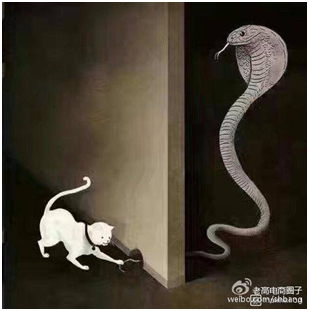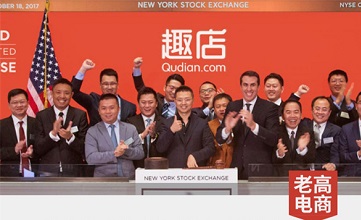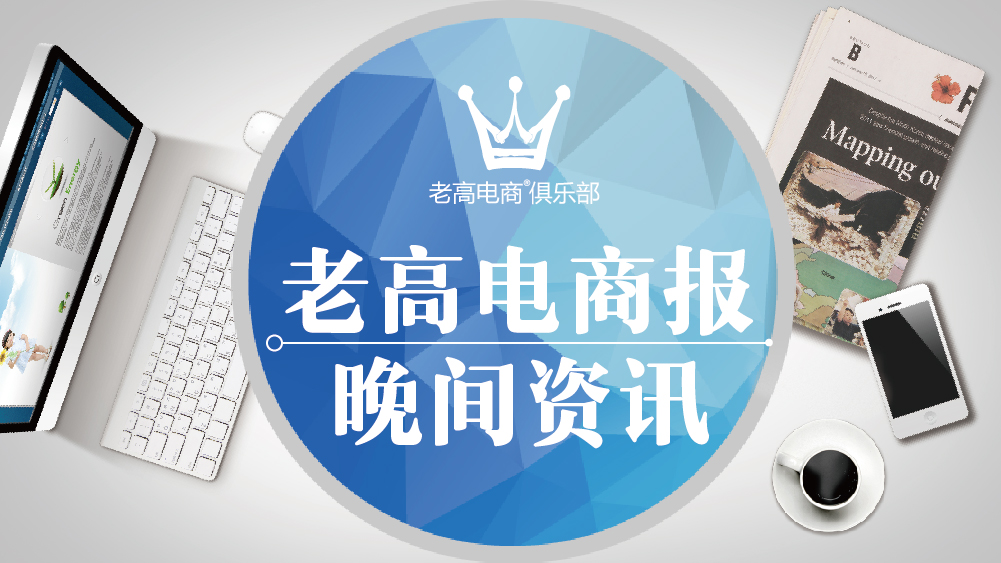#Laogao E-commerce Online Information# What do you think about 2016? The literary thing is that flowers are blooming and oil is cooked with fire, and the rough thing is that demons are dancing and crackling. But no matter what, 2016 will always be over and 2017 will be around.
What will happen in 2017? Is it making the Internet bubble brighter and bigger? Or cliff-like romance? Instead of guessing, it is better to take a look at the 10 questions about the Internet industry in 2017.
1. Can live broadcast continue to die?

Don’t worry about how beautiful the live broadcast originally envisioned and how ambitious the entrepreneurs are. The reality is that this year, the live broadcast group beatings and dances frequently show the lower limit, and the creativity is full of inadequate supervision. The Hammerface Internet celebrities who are mass-produced without any connotation are all light, all kinds of curiosity live broadcasts that break through the bottom line, all kinds of false charity that challenge morality, and all kinds of pornographic and sexy sales that violate the law are emerging one after another. The melon-eating crowd can’t help but ask: What’s wrong with this world? Is this still a world I am familiar with?
To put it simply, this kind of mental pollution is even more terrible than haze. Even if you don’t bring bad kids, it’s not good to scare cats and dogs.
To put it bluntly, it seriously affects the construction of socialist spiritual civilization, and our spiritual food cannot be this garbage.
Grandpa Deng Xiaoping said: Children are disobedient and it’s time to spank.
So, supervision has come, with various means of banning the account, blacklisting, interviews, real-name systems, and licenses.
But another voice has always emerged one after another; there is no freedom, excessive supervision, and the live broadcast is killed in one fell swoop...
Live broadcast will move towards 2017 through such stutters.
Live streaming has a wide road, with countless directions such as education live streaming, e-commerce live streaming, travel live streaming, sports live streaming, game live streaming, news live streaming, etc., but they just plunged into the muddy pit of all kinds of people.
In 2017, was the live broadcast killed by a brick in a game with relevant departments? Or should you be reborn from the ashes and seriously move the live broadcast wider and deeper?
2. Where is the bottom line of marketing?
In the second half of 2016, the Roll incident finally put the marketing controversy in front of the public. Can marketing have no bottom line? Can malicious marketing be impunitive? Is no one responsible for the harm to social interests? This is a question that everyone is thinking about.
In the commercial society, marketing is understandable. No one will say anything with some spoofs and jokes. But is marketing what marketing should do by using people’s kindness, ignorance, and the developed power of information dissemination to consume the public’s trust in kindness and make ill-gotten money by deception?
The Internet is not a lawless place, and marketing cannot be done recklessly.
In 2017, can marketing set a bottom line?
3. How long can internet celebrities be famous?

If you want to talk about the hottest words in the Internet industry in 2016, Internet celebrities are definitely among the top. Benchmark figures such as Papi Jiang, Zhang Dayi, and Tongdao Da have attracted a lot of attention with their coquettish moves and a lot of money. But how long will the internet celebrity be popular have been questioned by everyone who wants to get a share of the internet celebrity economy.
Luo Zhenyuming, who created the first advertisement for Papi Jiang, said that he wanted to harvest and make money first. Ruhan, the most famous internet celebrity company in China, currently has only one successful Internet celebrity case, Zhang Dayi. How long can internet celebrities become popular?
Of course, there is a necessity for Internet celebrities to appear, such as overproduction, consumption upgrades, information explosion, and more and more petty bourgeoisie who want to have taste. How can they claim to be independent? Internet celebrities provide a package of lifestyle and emotional needs solutions.
but……
The operating model of Internet celebrities is highly exclusive, and the more niche the more attractive it is, the more it is. If you want to become bigger, you will be destroyed in front of the experienced brand owners in minutes. All the soldiers can break through.
Internet celebrities are a high-threshold profession. If you want to play, you can do whatever you want. If you want to make money, you want to make money for a long time, and your professional skills, team operations, and supply chain requirements are not low at all. Nowadays, most of the boys and girls who want to be internet celebrities are destined to be cannon fodder.
Internet celebrities are a winner-takes all and change very quickly. If a newcomer wants to stand out, he or she will either be strong in his hands or win by surprise. The old man wants to maintain his position, or he or she will make new things from time to time, or have an overwhelming advantage.
The best result for Internet celebrities is also a pyramid-like structure. The top Internet celebrities are so full that they can't afford it.
The key is, after the noise, how much value can Internet celebrities provide in the entire business chain? To put it bluntly, aren’t Internet celebrities just Internet shopping guides (e-commerce internet celebrities), parallel-made stars (film and television internet celebrities), opinion leaders (knowledge internet celebrities), and jokesters (live internet celebrities)? Under stricter supervision, how much user time can Internet celebrities who are not good at taking the lead in splitting their user experience from movies, TV series, variety shows, and social tools?
In 2017, will Internet celebrities dig deep into their own value and form a unique business ecosystem, or will they gradually become a mascot of commercial hype and destroy everyone?
4. Is content e-commerce a pit or an opportunity?
Since 2016, Alibaba has repeatedly mentioned contentization, and whether it is domestic Shuangwei or foreign Amazon and Facebook, its emphasis on content is becoming more and more obvious, and it has spread all kinds of money.
The logic of content e-commerce is simple and crude enough: if you like me, buy me. But the reality is that customers may not necessarily like it or buy it.
E-commerce itself does not have the ability to start content, and those with content creation ability are all big players, so "copying" constitutes the main theme of content e-commerce in 2016. Prosperity is prosperity, which is very empty. Of course, this is easy to solve. If you have money, there will naturally be people, and e-commerce is not short of money.
Content and e-commerce are two different things. It is easy to do content that readers like, and it is easy to make products that customers like, but it is really not easy to make customers want to buy your products after reading the content. But we must not do it. Now that homogeneity is becoming more and more obvious, production is becoming more and more oversupply, traffic is becoming more and more expensive, how can we break through without relying on content to get out of differentiation?
Of course, this is easy to solve. After doing it for a long time, you will naturally find out the method.
What is difficult to solve is how much market share can content e-commerce suck? Is it cost-effective to do content e-commerce?
User time is limited and attention is even scarce. How many people are willing to buy while watching? It costs a lot to make content. After everyone makes content, the cost will increase by a factor of a lot, and finally it is a resource competition. How many people can afford this part of the cost to merchants and how many people are willing to bear it?
There is a prerequisite for making content. Not all products are suitable for making content. This destined that content e-commerce will be a minority in the e-commerce family. After the new situation is over, it is almost inevitable that it will not be taken seriously.
In 2017, content e-commerce will continue to move forward, but whether merchants can do it well and whether they can taste the sweetness from content e-commerce is really a big question.
5. Is shared bicycles the next hundred regiment battle?

?Before entering, you don’t know if the one behind is a wind or a pitfall. This applies to O2O that is spinning and extinguished, it applies to the hundreds of groups of capital battles, it applies to the winner-takes-all private car battle, and it also applies to the shared bicycles that are rushing to go online this year.
Burning money, occupying the market, and finally finding ways to make a profit is the only logic. The profit problem that should have been most understood has become the most important unknown on the gambling table.
How big is the short-distance travel market in China? How many people in China are willing to try shared bicycles, and how many people can start-ups "fool" them to become their own users? How to solve the problem of the integration of shared bicycles and existing transportation systems? Is the cost of user education in the shared travel market bottomless? When will you make money and how much can you make? These are all unknowns.
In 2017, was shared bicycles soaring and messy? Or do you dominate the world like Didi and slowly find a way to make money?
6. Can public opinion really determine the life and death of a company?
We are always talking about the public's words, always talking about the sharp eyes of the masses, and always talking about the just power of public opinion, but is there any use of public opinion?
Baidu broke out of the Wei Zexi incident, and the crowd was excited. After the hustle and bustle, Baidu was still Baidu, Wei Zexi was still Wei Zexi, and the melon-eating people were still melon-eating people.
Samsung's mobile phone exploded, ignoring, denying, distorting the facts, and the crowd was excited. After the hustle and bustle, Samsung was still Samsung, and the phone was still sold and the money was still earned.
In the business society, do we overestimate the power of public opinion in our hands? Is there any problem that public relations cannot solve? Do you have time to wipe out the black material?
In 2017, will it not be better or worse, will public opinion gain greater power or will it become a toy of business and a puppet of capital?
7. Can entrepreneurship counterattack?
In 2016, Luo Yonghao, the leader of the sentiment, suffered and entangled for a year, and Hammer also stumbled on his own entrepreneurial path.
In 2016, Jia Yueting, who likes to hold press conferences, was bleeding, and LeTV also silently healed his wounds amid doubts about debt, resignation, and scams.
Premier Keqiang encourages mass entrepreneurship and innovation, but entrepreneurship is not that simple. Is it okay to rely on a person who is full of chicken blood? Is there an earth-shaking product? Countless people who start businesses through their feelings are called scammers, and countless people who rely on their products to conquer the world are either eliminated or acquired.
Starting a business is not that simple.
Grassroots counterattack is becoming increasingly difficult, and class solidification is becoming more and more obvious.
Is entrepreneurship a stage to realize personal dreams or a leek land harvested by giants?
In 2017, millions of people will still go to the battlefield of entrepreneurship, but they just don’t know where the heroes are?
8. Can Alipay do a good job in socializing?
Everyone knows Jack Ma’s intention to socialize, and everyone knows Jack Ma’s practice of not doing socializing well but never giving up. This year, Alipay launched the "Campus Diary" and "White-collar Diary" circles, intending to activate users' social enthusiasm through beauties, but a bad thing was caused by various explicit "beauty pictures" in the circle.
In the future, the competition on the Internet will be a competition for user time. The longer the user precipitates, the more valuable the product is. For competing for user time, social interaction is the best entry point: high frequency, urgent needs, and large user base.
The characteristic of social tools is that the strong will always be strong. If more people are used, they will only attract more people to participate, and the migration cost is very high. Under the premise that WeChat does not make big mistakes, it is almost impossible for Alipay to create another WeChat.
But whether it is for strategic layout or commercial survival, Alipay must do socializing.
Some things can be done by small companies, but large companies just can’t. Momo's reputation has become popular with the "hookup artifact", but it still has to spend a lot of effort to whitewash before it is launched, not to mention a national-level product like Alipay that holds 500 million users.
In 2017, Alipay made more attempts to socialize. As for the results? God knows!
9. Are black technologies just gimmicks?
VR, AR, drones, artificial intelligence, and autonomous driving have been booming this year. A large number of entrepreneurs are also entering the market and occupying land, but how far is it from large-scale commercial use? Can entrepreneurs today last until the dividends come?
When can the basic data entry problems, application scenario problems, and shopping experience problems of VR and AR be solved?
When will the policy issues, cost issues, technical issues and talent issues of drones be solved?
When will the hardware problems, software problems and big data support problems of artificial intelligence and autonomous driving be solved?
In 2017, will these black technologies come out after much anticipation or will they continue to be elusive and make big news from time to time?
10. Ren Zhengfei or Jack Ma?
In 2016, the hottest company was not Alibaba, LeTV, but Huawei. Huawei is being studied, and Ren Zhengfei is being worshipped. Huawei has become a phenomenon.
If it is Alibaba to be elegant and elegant, then the tough and military style is probably Huawei. I love Huawei so much, and I hate Huawei so much that I treat Huawei as a demon.
People need idols, others are too far away. In the current money and business society, business stars such as Jack Ma, Ren Zhengfei, Lei Jun, Ma Huateng, Zhang Yiming, Liu Chuanzhi, Xu Xiaoping, Ding Lei, Dong Mingzhu, and Zhou Hongyi have become real idols, while Jack Ma and Ren Zhengfei represent two images:
One is the romantic cloud, the other is the fine steel that has been tempered for thousands of times; the other is the head full of personal charm, and the other is the captain who has made a decision; the other advocates the future of innovation, and the other advocates dedication and hard work...
Following Ren Zhengfei or Jack Ma is a personal choice, but you must always have your own direction of sticking to it.
In 2017, are you ready?

PS: 3 keywords for e-commerce in 2017
1. Grassroots VS Elite: The threshold is low, anyone can play, and personal entrepreneurship is booming; but the competitive pressure is also soaring, and only those who know operations, good products, and good teams can make money;
2. Decentralization VS Centralization: The era of Renren’s e-commerce is coming, Internet celebrities #Original First Launch#I Look at 2017: 10 Questions in the Internet Industry
3. New mode vs. old routines: new modes such as live broadcast, internet celebrities, and social networking bring excellent marketing effects, but after users' time is saturated, they will return to the old path of resource competition. Live broadcast, internet celebrities, and social networking will become the standard marketing features. Only by relying on large platforms can you make a breakthrough.
Thank you for your attention and support to Laogao Crown Club . Please indicate the source for reprinting by Xuanming Network www.shxuanming.net






![#Laogao E-commerce Newsletter#[E-commerce Evening News Brief on June 29]](/update/1652145126l900304477.jpg)



 EN
EN CN
CN
